Bienvenue dans le catalogue en ligne du centre de documentation conjoint de Smart et de Culture & DÃĐmocratie.
Le catalogue rÃĐpertorie plus de 3000 ressources liÃĐes aux champs dâactions thÃĐmatiques des deux organisations partenaires, parmi lesquels : sociologie de lâart et de la culture, politiques culturelles, mouvement coopÃĐratif, entrepreneuriat solidaire, ÃĐconomie sociale.
Une partie des ressources dite ÂŦ vive Âŧ est directement accessible dans le centre de documentation, une autre partie est archivÃĐe.
Ce fonds documentaire multilingue regroupe des ouvrages scientifiques, des essais, des guides pratiques, des thÃĻses, des revues, des dossiers, des publications sur supports numÃĐriques, âĶ.
Toutes les ressources disponibles dans le centre de documentation sont en consultation libre sur place. Lâemprunt nâest pas consenti. Photocopieuse disponible sur place pour la reproduction dâextraits.
A partir de cette page vous pouvez :
| Retourner au premier ÃĐcran avec les derniÃĻres notices... |
DÃĐtail de l'indexation
Ouvrages de la bibliothÃĻque en indexation
catÃĐgorie vide
 A. GÃĐnÃĐralitÃĐs
A. GÃĐnÃĐralitÃĐs